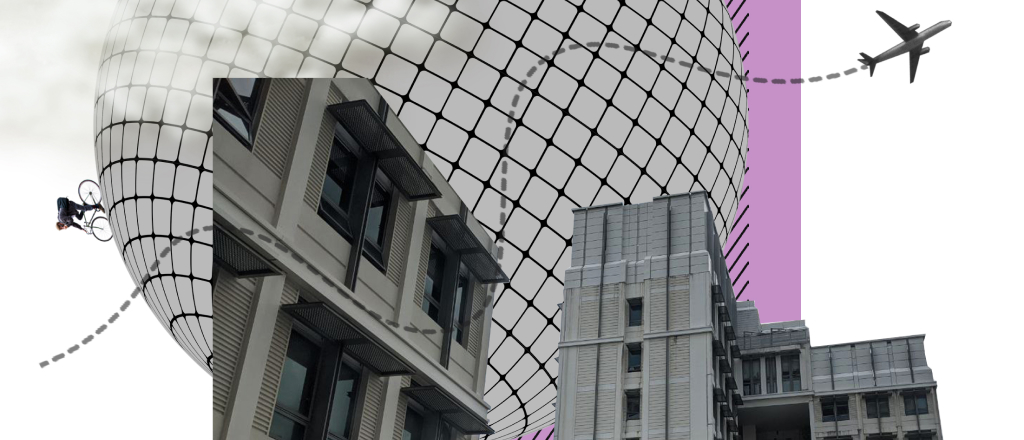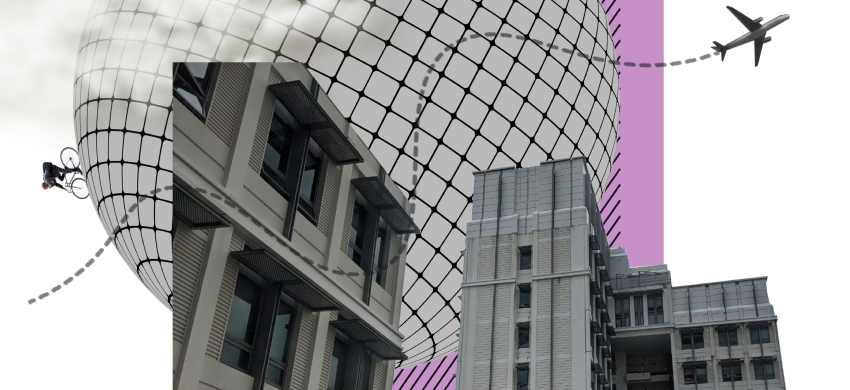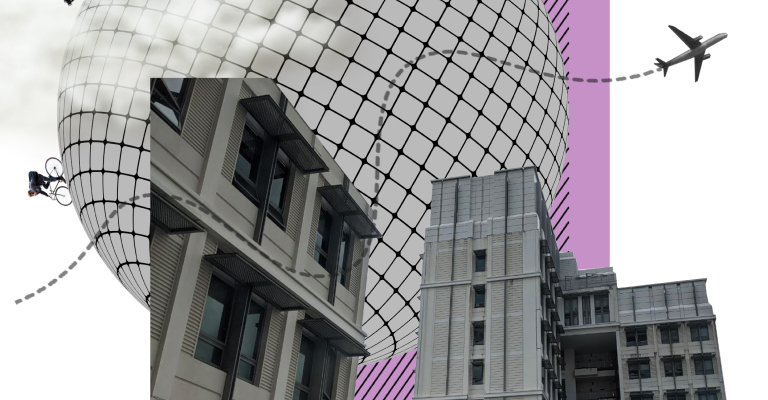In Urban Studies, we, as students of the city, seek to understand how we shape the city through our practices, transforming spaces to places and how the built environment of the city in turn shape our behavior. This endeavor creates a real need for students to engage in experiential learning. Edward Shils (1991: 126) wrote the following of Robert Park, a founding member of the Chicago school of Sociology: “he made himself familiar with the city… walking its streets, stopping to look… speaking to whomever”. We aspire to similar engagements as Urban Studies students through experiential learning, to see the places of the city, understanding its social, economic and political organization, and how these shape the ways in which we relate to the city.
Shils, E. (1991). TEACHING: Robert E. Park 1864-1944. The American Scholar, 60(1), 120-127.
Read on to learn about the many experiential learning opportunities offered via the Urban Studies major.
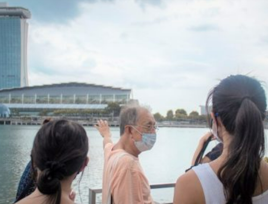
Fieldtrips! – YSS3274 Urban Singapore
1 March 2021 (Mon)
At Singapore
Prof. Chua Beng Huat brings students taking YSS3274 Urban Singapore on a trip around the city to experience it first-hand. They visit places like the Urban Redevelopment Authority’s Singapore City Gallery, Kampong Glam and Marina Bay to better understand Singapore’s history, development, socio-economic conditions and the processes that shape Singapore.
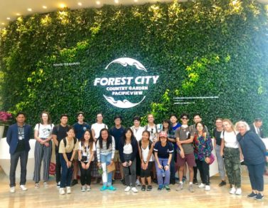
[Fieldtrip] Cities A to Z: Forest City
20 September 2019 (Fri)
In September 2019, The Cities A to Z class visited Forest City Malaysia to observe a trans-nationally developed enclave and experience urbanism (forest City) and its negative environmental effects. The students first visited Kelab Alami – an NGO located in Kampung Ladang in Tanjung Kupang, Johor. There, the students engaged with the citizen scientists from Kelab Alami to learn about their research on local seagrass, island and mangrove habitats and specimens. The students were treated to a boat ride along the shoreline to observe the social and environmental impacts of the Forest City Development. Next, the students visited the Forest City showroom and conducted a speed ethnography on the displays and other leisure props.
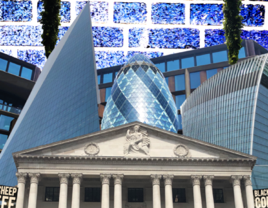
[LAB] London LAB 2019
15 July 2019 (Mon)
London has been a major human settlement for millennia: capital of the UK, a leading global city, and once the metropolitan heart of the British Empire. London is a city in constant transition and this LAB offered students the opportunity to see first-hand how London has changed as a city over time, in terms of its architecture, its morphology, its governance and its social make-up.
LondonLAB 2019 provided students an opportunity to experience a large global city and to see it through a historical and urban studies framework. Our students visited a number of key localities in London, each telling a different story of London’s ongoing regeneration and how that regeneration has responded to changing visions of development and transnational relations, including imperial expansion and postcolonial migration. Some sites we visited reflected slow, incremental urban transformation (such as immigration-led social change or gentrification), while some sites we visited reflected rapidly-realised, grand urban plans.
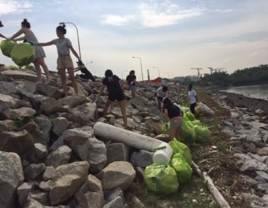
[Fieldtrip] Beach Clean-up
1 April 2019 (Mon)
The students conducted a beach clean-up in collaboration with the non-profit Green Nudge in Singapore (Water and Waste in Urban Environments, Semester 2, Academic Year 2018/2019). Students collected more than 160 kg of trash in a few hours. The goal of this experiential learning opportunity was to reflect on the type of waste existing along the shores and in the marine environment, its origin, and policies that might curb the problem.

[LAB] London: City in Transition
16 May 2017 (Tue)
For one week in May 2017 eighteen students joined Prof. Jane M Jacobs and landscape architect Ms. Victoria Marshall for a summer LAB (Learning Across Boundaries) focusing on regeneration in London. They explored many different regeneration phases: from the rebuilding after the Great Fire; to Georgian and Victorian era renewals; through to the dramatic redevelopments of more recent times, such as Southbank, Canary Wharf, the Olympics site, and King’s Cross. Their experience included lectures from, and guided site visits with, faculty with the Bartlett School and Department of Geography at UCL, community activists, and the Survey of London. They also learnt how to use photoshop to support their making fun visual interpretations of what they saw. Here is where they went, their reflections, and their pop up exhibition: London LAB Digital Exhibition
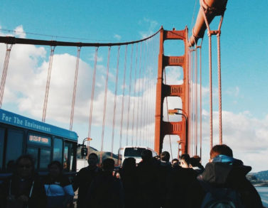
[LAB] San Francisco: Placemaking & Community Development
14 February 2017 (Tue)
For one week in February 2017, eighteen students joined Prof. Nick Smith and Prof. Catherine Sanger for a learning trip on community development in the hotbed of the 1960s Counterculture movement, San Francisco. They visited San Francisco’s famed and unique neighborhoods, each is a sanctuary to a community with a shared identity across ethnicity, sexual orientation and class. The students immersed themselves in an analytic exercise by doing comparative sketches across different neighborhoods they visited. The acquired observations and analytical skills culminated in a full-day charade activity in which students came up with detailed proposal for stimulating communal interactions between the Yale-NUS and NUS communities.

